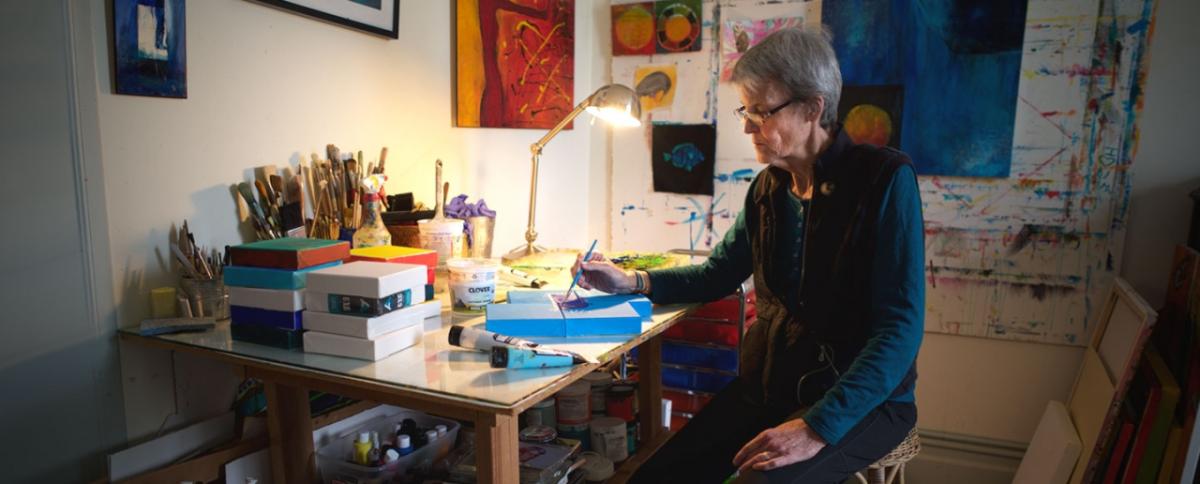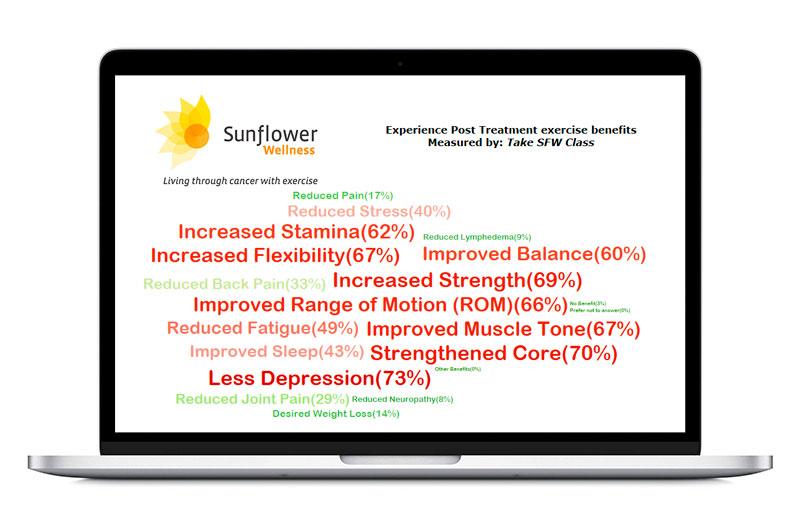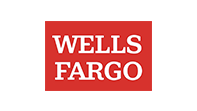Volunteers’ Digital Touch Tells Cancer Nonprofit’s Story
They are all friends and loved ones of people with cancer. They are also Wells Fargo data specialists who volunteered to help a pioneering cancer nonprofit tell its story.
Volunteers’ digital touch tells cancer nonprofit’s story
As a teenager, Michael Sanchez would stand at the bedside of cancer patients as his mother, a hospice nurse, comforted them in their final days. It was something he would never forget.
Years later, his colleague Pam Jamison-Lenz would lose three loved ones to cancer: her mother, her mother-in-law, and a close college friend.
Israel Curiel lost a longtime co-worker last year. He remembers the day he came to work at Wells Fargo, looked for his pal, and found the desk empty.
They are among the many people who have been affected in a very personal way by various forms of the disease that kills nearly 600,000 people a year in the U.S.
They also represent part of a volunteer group of Wells Fargo data analytics specialists who played a role in helping Sunflower Wellness, a San Francisco-based nonprofit organization at the forefront of exercise and cancer treatment research. The nonprofit recently hosted the American College of Sports Medicine roundtable conference on new guidelines for such research.
“We have all been touched by someone with cancer,” said Jamison-Lenz, an analytics consultant and leader of the volunteers. “This was a way that we could help out and try to make a difference.”
Working virtually at locations across the U.S., the Wells Fargo team members applied their skills in analytics on behalf of Sunflower Wellness, which develops and provides exercise programs for people with cancer.
Their task: Organize the results of Sunflower’s first-ever client survey, feed the data into a sophisticated software reporting tool, and generate visual illustrations that bring the numbers to life.
Their goal: Highlight what the nonprofit is doing well and the differences it is making for clients, while also showing how it can improve.
The end result, nonprofit leaders said, has given Sunflower a clear validation of its work, ground-breaking insights to improve its services, and its first program-specific research documentation to share with donors, health care industry leaders, and the community at large.
“It’s been truly amazing what happened,” said co-founder Bill Bain, who is also a technology entrepreneur in the Bay Area. “We had all this data pouring in from our survey, from our people telling us what our programs and classes have meant to their lives. But we didn’t really know what to do with it. All that changed when the analytics folks stepped in to help.”
‘What a cool way to use analytics’
Eric Altman, an information systems architect for Wells Fargo, knew Bain was an energetic, knowledgeable adviser on technology. They worked together on several projects when Bain advised the company on strategic use of big data in financial services.
But when their casual conversation turned to Bain’s other avocation — Sunflower Wellness — his enthusiasm was unbounded, Altman said.
“Yes, he’s passionate about how technology works, but he’s really passionate about Sunflower’s work,” Altman said. “It really impressed me how he believes so strongly in its mission and the role of exercise and fitness in helping people dealing with cancer.”
When Bain mentioned the nonprofit’s need to interpret its survey results, it gave Altman an idea. He knew about the analytics group’s monthly conference call to discuss professional development topics. He connected Bain to the organizers, who invited him to speak during a call and make the nonprofit’s needs known.
Jamison-Lenz in Minneapolis, Sanchez in San Francisco, and Curiel in Charlotte, North Carolina, were among the immediate volunteers. Also joining in were Mark Houlihan (Charlotte), Mike P. Murphy (Charlotte), and Rainald Guentner (San Francisco).
“When I saw how Sunflower brought so many resources together — the counseling, classes, and community support — it really resonated with me,” said Sanchez, an analytics manager for Wells Fargo Community Relations. “I thought, ‘What a cool way to use analytics to help that organization.’”
Curiel, a credit risk analytics consultant, said the opportunity instantly struck a chord with him. He has lost family members and friends to cancer, including a longtime co-worker who died in December.
“I knew I could not do anything for him, but in some small part, this work for Sunflower could be my contribution to the effort fighting cancer,” said Curiel, who also volunteers by developing analytics for Charlotte-area school teachers of underprivileged children.
Houlihan, an analytics technology manager, said the most fulfilling moment of the project was when they delivered the results of their work to Bain and other Sunflower leaders.
“Just seeing their gratitude meant the world to us,” he said. “It was great to know that we had produced something that would be so meaningful and would play a role in helping them take their programs to the next level.”
Seeing everything come together for the project has been an exciting experience, said Prahalad Thota, Wells Fargo’s executive sponsor of the analytics professional discussion group, known as a Community of Practice.
“It’s also a good example of a creative way to volunteer — it doesn’t always have to be in person,” said Thota, the company’s head of Enterprise Analytics and Data Science. “We plan to explore other opportunities like this for our analytics community, both virtually and in person.”
Exercise, resolve, and survival
Mary Isham stretched, held, and breathed deeply as part of her usual yoga routine nearly 20 years ago. Suddenly, she felt a painful mass in her stomach. A day later, medical scans showed the culprit — neuroendocrine pancreatic cancer; the diagnosis was terminal. Major surgery ensued, multiple organs were removed, and a life was altered forever.
“I was 49 years old and everything in my life changed,” said the retired nurse and former health clinic director. “I couldn’t go back to work, take care of my kids, or live normally. I had to learn to live without some major organs and manage my insulin and blood sugar 24 hours a day.”
Isham calmly recounts the events now — the recurrence of her cancer years later; another cancer diagnosis (non-Hodgins lymphoma) in 2010; more drugs and treatments; and a jarring fall months ago that broke her femur bone, leading to more surgery.
The nexus of her survival, she said, has been Sunflower and the support community that has sprung up around its exercise classes, support meetings, and counseling sessions in the Bay Area. That support and her newly cultivated artistic talent have given her the resolve to keep fighting the disease’s sometimes debilitating effects, she said.
“I had always been active, doing outdoor things like walking and hiking. But when I learned about their programs, it was like going into another universe,” said Isham, now a member of the cancer patient advocacy committee at the University of California at San Francisco. “I’ve come through this pretty well because of them.”
“Our people are so strong”
Isham’s story is like that of many of Sunflower’s clients, who felt powerless about their cancer until they learned about the power of exercise, nutrition, and the community of support around them, said Regan Fedric, Sunflower co-founder and program director, who has pioneered the nonprofit’s work in exercise therapy for cancer patients.
The work that Wells Fargo’s volunteers did for Sunflower created a new channel for clients to share their experiences and spotlighted the nonprofit’s programs in an unprecedented way, she said.
“Our people are so strong,” said Fedric, who established some of the earliest exercise therapies for cancer patients 17 years ago. “They really want to tell their story to help others. They have a vision and a conviction about doing that.
“As an organization, we have a great story as well,” she added. “The analytics work on our survey made us realize that the better we are at collecting data to support our story, the better we can tell it. And the more people we can reach.”
Sunflower Wellness leaders said the agency’s client base has grown dramatically, fueled, in part, by the free one-hour exercise counseling session it provides to people with cancer. That has led to a greater need for volunteers in areas such as social media, fundraising, office administration, financial management, and service on its board of directors.
“Our goal is to design an exercise program that is customized for the individual,” Bain said. “Everyone is different in this cancer journey — different in age, endurance, side effects of treatment, and emotional needs. We can factor all of that into the mix when we tailor a program for them. And most of all, we can let them know they are not alone.”



